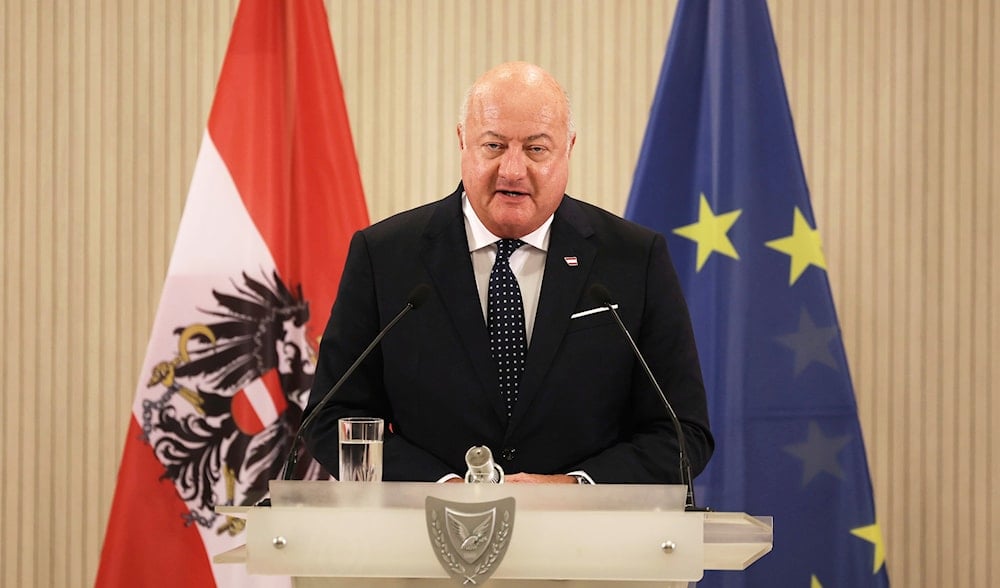Austria reaffirms neutrality, rules out NATO membership
Austrian Chancellor Christian Stocker confirms NATO membership is not on the agenda, reaffirming Austria’s neutrality amid Russian warnings and a renewed debate over the country’s security policy.
-

Austria's Chancellor Christian Stocker speaks during a news conference after a meeting with Cyprus' President Nikos Christodoulides at the presidential palace in Nicosia, Cyprus, Friday, Aug. 22, 2025 (Yiannis Kourtoglou/Pool via AP)
Austrian Chancellor Christian Stocker stressed that joining NATO is not on the country’s agenda, reaffirming Austria’s long-standing policy of neutrality. Speaking on Monday to ORF broadcaster, Stocker said neutrality remains a cornerstone of Austrian statehood and is not under question.
His comments followed warnings from Russian Security Council Deputy Chairman Dmitry Medvedev, who cautioned against Vienna abandoning neutrality. Medvedev had described neutrality as fundamental to Austria’s identity and suggested Moscow could take legal and political countermeasures if the republic shifted toward NATO.
“We are a neutral country. Neutrality is beyond doubt. Therefore, the topic of [joining] NATO is not on the agenda for us at all. This threat surprised me,” Stocker said.
Current security debate
The NATO debate was reignited after Austrian Foreign Minister Beate Meinl-Reisinger suggested that “neutrality alone does not protect us” and called for a national discussion on security policy. This statement came in the context of Finland and Sweden’s accession to NATO and heightened European security concerns following the war in Ukraine.
Despite rejecting NATO membership, Austria is modernizing its defense policy. The government has pledged to increase defense spending to 2% of GDP by 2032 and strengthen military capabilities under the concept of “armed neutrality,” which allows robust self-defense without alliance commitments.
Russian response
Medvedev, in his remarks on August 28, claimed that abandoning neutrality would violate international agreements and even warned that Austrian territory could become a target in case of NATO membership. He further suggested Moscow might push for relocating international organizations currently based in Vienna.
Austria’s Foreign Ministry dismissed the threats, summoning Russia’s chargé d’affaires to protest what it described as interference in internal affairs. Defense Minister Klaudia Tanner also declared that Austria “will not allow itself to be intimidated or threatened.”
Neutrality as a foundation of Austrian policy
Austria’s neutrality dates back to 1955, when the Austrian State Treaty ended Allied occupation in exchange for a constitutional commitment to remain outside military alliances and prohibit foreign bases on its soil. Since then, neutrality has become central to Austria’s national identity, shaping its foreign policy and making Vienna a hub for international organizations such as the UN, OSCE, IAEA, and OPEC.
Public support for neutrality remains strong. Recent polls show more than 70% of Austrians favor maintaining neutrality, while only about one-fifth support NATO membership. Politically, major parties such as the Austrian People’s Party (ÖVP) and the Social Democrats (SPÖ) continue to reject accession, while only smaller factions, such as the pro-NATO NEOS party, have raised the issue.

 3 Min Read
3 Min Read










